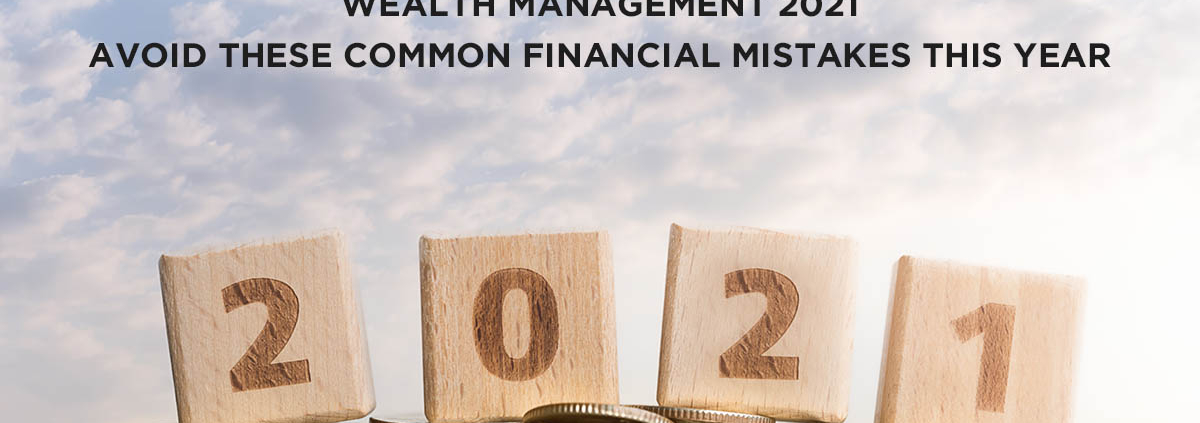The year 2021 is becoming synonymous with ‘economic recovery’, following a year of financial fallout across the world. With vaccine breakthroughs and resumption of activity, there is a general sense of optimism. But this period doesn’t reflect pre-pandemic conditions, because the “new normal” is characterized by changes in consumer behavior, geo-political shifts and rapid digitization, which have a knock-on effect on wealth management. Therefore, as we attempt to secure our financial position this year, it is important to avoid these common and costly financial mistakes.
Not upskilling or keeping abreast of latest developments
Lack of financial knowledge affects returns more than market forces can. A common trait of successful investors is that they never miss an opportunity to learn and upgrade their skills. Especially given the current blink-and-you-miss-it dynamism in financial markets, keeping tabs of new developments is a must-have attribute.
Jumping the gun
Volatility is one of the defining characteristics of current economics. From equity shares, to mutual funds, to REITs, to Bitcoin, fluctuations are commonplace. So, it is advisable to be patient and not take decisions in haste. Ensure that other people’s success or failure does not impact your decision to hold or liquidate. Remember: The day you plant the seed is not the day you eat the fruit.
Confusing past returns with future expectations
Don’t let your past success or failure define your future expectations. The world is plodding towards a sense of normalcy, after a year of unprecedented challenges. So, naturally, this year has some lingering effects that could define investment outcomes. It is therefore advisable to start with a clean slate, analyze the current trends and market dynamics, and make informed investments.
Getting greedy
If there was ever a perfect time to set stop-loss or take-profit point, this is it. A stock can plunge overnight or can remain bullish for months, based on a wide range of market forces. Given today’s velocity and virality of information, a simple social-media gaffe can jeopardize years of reputation. So, under such socio-economic climate, it is wise to set clear-cut expectations and adhere to them.
Keeping all eggs in one basket
The contemporary hyper-connected investment ecosystem is a zero-sum game — someone’s loss is another’s gain. This scenario calls for diversified investments and return-risk distribution, rather than unhealthy reliance on a single investment instrument. It is advisable to explore diversified asset allocation, so even if one investment backfires, others can offset the losses.
Biting more than you can chew
We are drawn to consumer culture, which lures us into spending on products/services that are inessential and expensive. This adds unnecessary burden on your finances. If the pandemic taught us anything, it is that some things are not as “essential” as others. Going forward, it is important that we incorporate such lessons in our investment decisions.
Not having contingency/emergency fund
We are creatures of habit. Therefore, when things are going smooth without disruptions, we tend to get ahead of ourselves and invest in illiquid assets that have lock-in periods. This did pay dividends before. However, this became problematic during the pandemic, when people lost jobs and routine income. So, going forward, it is advisable to set aside funds for at least six months of living expenses.
Being conservative
There is a reason why risk-averse avenues like fixed deposits (FDs) and savings accounts have low yields: They are dissociated from market dynamics, where all the action is. So, for those looking for short-term gains and liquidity along with long-term savings, unconventional asset classes like bullion, real estate, natural resources and cryptocurrencies merit some attention.



